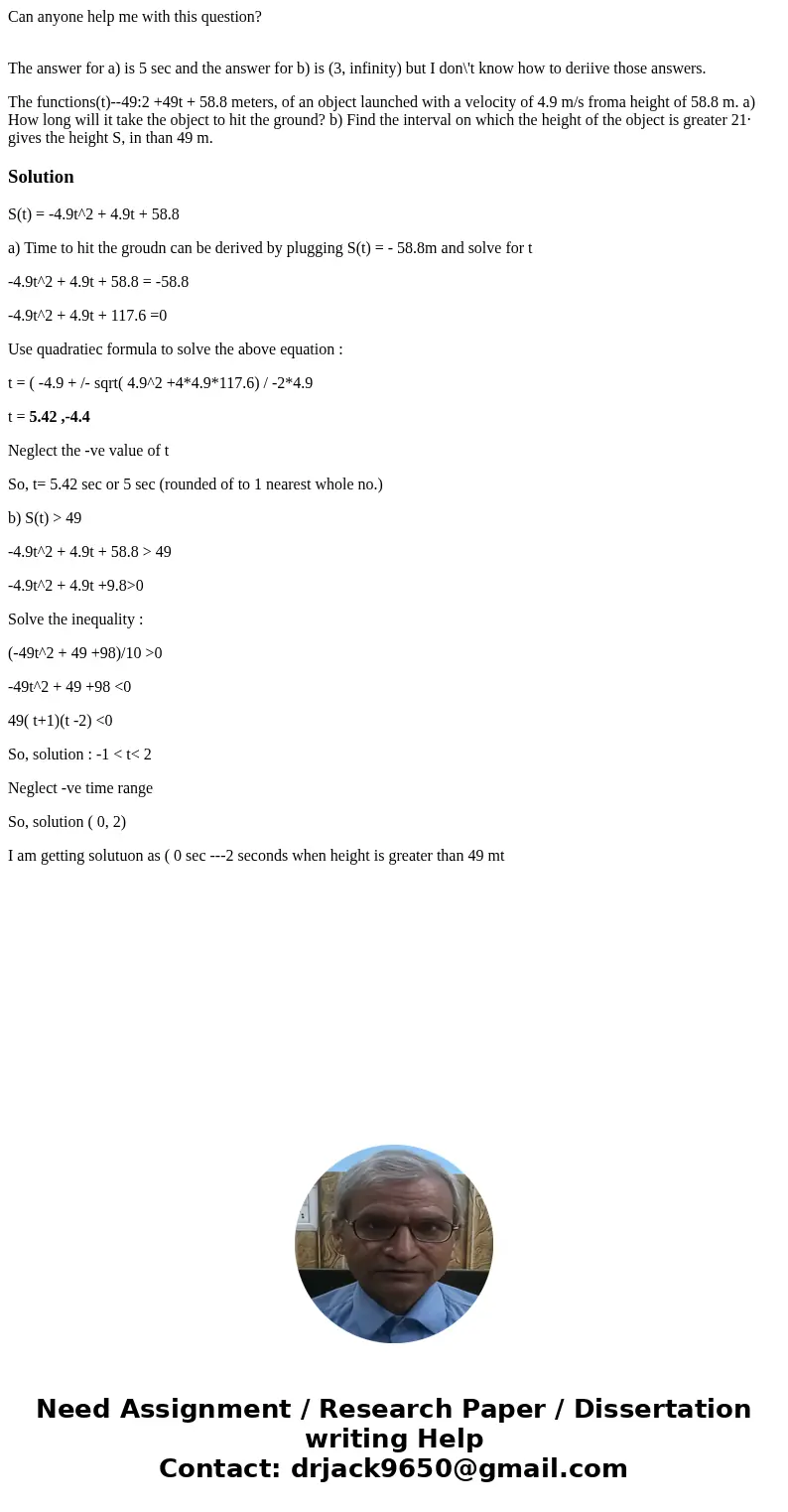Can anyone help me with this question The answer for a is 5
Can anyone help me with this question?
The answer for a) is 5 sec and the answer for b) is (3, infinity) but I don\'t know how to deriive those answers.
Solution
S(t) = -4.9t^2 + 4.9t + 58.8
a) Time to hit the groudn can be derived by plugging S(t) = - 58.8m and solve for t
-4.9t^2 + 4.9t + 58.8 = -58.8
-4.9t^2 + 4.9t + 117.6 =0
Use quadratiec formula to solve the above equation :
t = ( -4.9 + /- sqrt( 4.9^2 +4*4.9*117.6) / -2*4.9
t = 5.42 ,-4.4
Neglect the -ve value of t
So, t= 5.42 sec or 5 sec (rounded of to 1 nearest whole no.)
b) S(t) > 49
-4.9t^2 + 4.9t + 58.8 > 49
-4.9t^2 + 4.9t +9.8>0
Solve the inequality :
(-49t^2 + 49 +98)/10 >0
-49t^2 + 49 +98 <0
49( t+1)(t -2) <0
So, solution : -1 < t< 2
Neglect -ve time range
So, solution ( 0, 2)
I am getting solutuon as ( 0 sec ---2 seconds when height is greater than 49 mt

 Homework Sourse
Homework Sourse